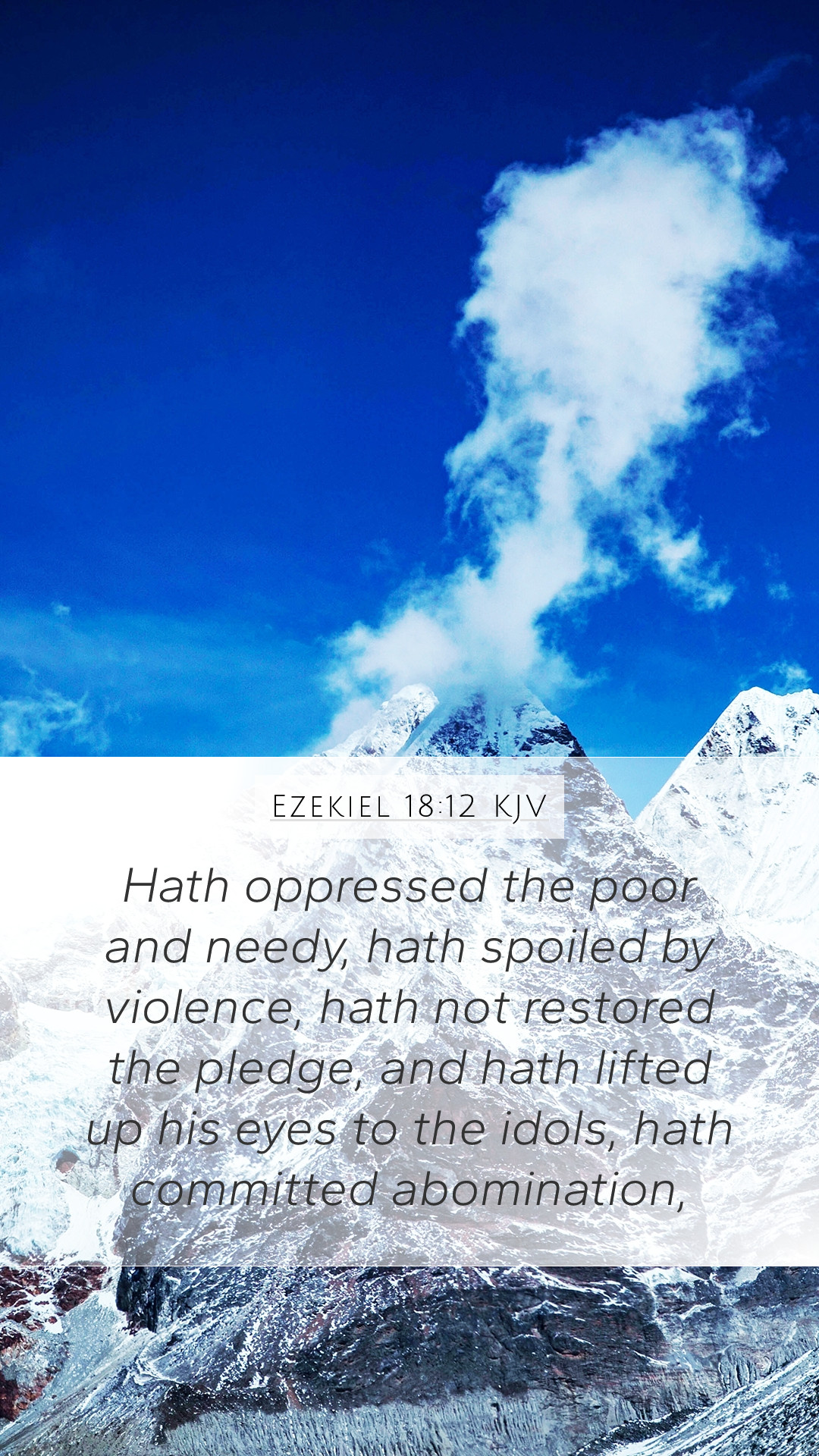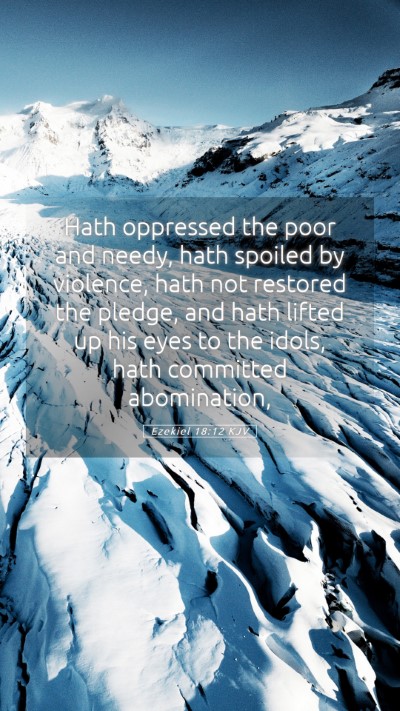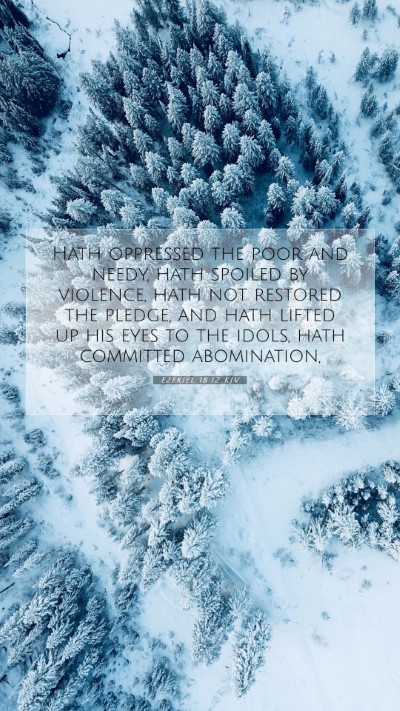Understanding Ezekiel 18:12
"They have oppressed the poor and needy; they have robbed from the foreigner without cause." (Ezekiel 18:12)
This verse speaks to the moral and ethical conduct that God expects from His people. It highlights sins related to injustice and exploitation, particularly against the vulnerable. In combining insights from public domain commentaries, we can derive a deeper understanding of this scripture.
Bible Verse Meaning
Ezekiel 18:12 serves as a prophetic indictment against the behavior of certain individuals within the community. Matthew Henry emphasizes that oppression of the poor and needy is a grave sin, one that is often overlooked in society.
Interpretation of the Verse
- Moral Responsibility: The core message revolves around the moral responsibilities individuals have, especially in caring for the marginalized and vulnerable in society.
- God's Justice: Albert Barnes elucidates that God's justice demands accountability for one's actions, particularly in matters of economic and social injustice.
- Scriptural Context: Adam Clarke points out that this verse is part of a larger exhortation urging a personal and communal ethical living, moving away from inherited guilt and focusing on individual accountability.
Difficulties Addressed
Understanding Scripture sometimes reveals complex passages. Here, we see how God calls out specific sins in society and highlights the importance of societal responsibility, thus encouraging readers to reflect on their actions. The historical context of oppression in ancient Israel can illuminate the modern-day implications and applications of this verse.
Lessons to Apply
- Standing Up for the Oppressed: This scripture compels us to advocate for those who cannot advocate for themselves, echoing the heart of Jesus' teachings.
- Personal Integrity: We must examine our own lives to ensure we are not complicit in systems that harm the vulnerable.
Additional Insights from Commentaries
Both Barnes and Clarke emphasize that the Lord sees the actions of all individuals. There is a call for introspection on how we treat those who are in need. This message remains relevant in discussions on social justice and ethics today.
Bible Cross References
- Proverbs 14:31 - "Whoever oppresses a poor man insults his Maker, but he who is generous to the needy honors him."
- Isaiah 10:1-2 - "Woe to those who decree iniquitous decrees, and the writers who keep writing oppression." - Addressing systemic injustice.
- James 5:4 - "Behold, the wages of the laborers who mowed your fields, which you kept back by fraud, are crying out against you." - A New Testament echo of exploitation.
Conclusion and Reflection
As we reflect on Ezekiel 18:12, the significance of this scripture cannot be understated. It calls believers to recognize their role in the larger narrative of social justice. Understanding Scripture through a lens of compassion and responsibility can lead to profound changes in both personal lives and the wider community.
Those studying this passage in Bible study groups or through online Bible study formats may find rich discourse in the application of its principles to contemporary issues of justice and care for the marginalized.


